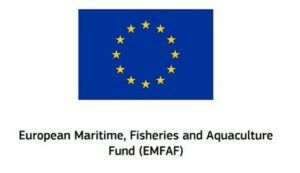Aid to the fisheries and aquaculture sector in the Basque Autonomous Community (FEMPA Fund)
The Common Fisheries Policy (CFP) of the European Union has as one of its essential objectives to promote a professional, economically profitable fleet that guarantees a sustainable exploitation of marine biological resources and allows an optimal exploitation without endangering the biological balance of the exploited stocks and the integrity of the physical environment.
Regulation (EU) 2021/1139 of the European Parliament and of the Council of 7 July 2021 establishes the European Maritime, Fisheries and Aquaculture Fund (EMFF) for the period from 1 January 2021 to 31 December 2027, and set out the priorities of the fund, its budget and the specific rules for granting funding.
More information here
Objetive
Aid to the fisheries and aquaculture sector in the Autonomous Community of the Basque Country, provided for in Regulation (EU) 2021/1139 of the European Parliament and of the Council of 7 July 2021 establishing the European Maritime, Fisheries and Aquaculture Fund for the period from 1 January 2021 to 31 December 2027 and amending Regulation (EU) 2017/1004 (FEMPA Regulation).
According to Article 41 of the EMFF Regulation, the maximum aid intensity rate shall be 50% of the total eligible expenditure of the operation. As an exception, the percentages of intensity of the aid lines are set out in Annex II of the Call Order.
Targeting
Beneficiaries of this aid may be natural and legal persons, communities of property, producers’ organisations in the fisheries sector, fishermen’s guilds and their federations, and scientific or technical bodies which contract, finance or carry out the investments and expenditure considered eligible.
Groups of private natural or legal persons without legal personality may also be beneficiaries, provided that none of their members is legally disqualified from doing so.
The beneficiary must have both the financial and operational capacity to carry out the proposed action or work programme.
Description
The lines of aid to be subsidised, among those foreseen in the FEMPA Regulation, are the following:
1.- Sustainable management of fisheries resources
2.- Waste collection with the participation of fishermen at sea and on beaches
3.- Reduction of the impact of fishing
4.- Energy efficiency and climate change mitigation without increase of capacity
5. – Energy efficiency and climate change mitigation with increase of capacity
6.- Replacement or modernisation of engines
7.- Improvement of working and safety conditions on board without increase of capacity fishing
8.- Improvement of working and safety conditions on board with increase of capacity
9. – Start-up aid to young fishermen
10.- Added value, circular economy and food safety
11.- Innovation
12.- Training
13.- Control, inspection and enforcement
14.- Fishing ports, landing sites, auctions and anchorages
15.- Innovation in aquaculture
16.- Productive investments and business creation in aquaculture
17.- Investments for climate neutrality in aquaculture
18.- Contribution of aquaculture to good environmental status and provision of environmental services
19.- Animal health and welfare measures
20.- Promotion of human capital and networking
21.- Enhancement of the potential of aquaculture production areas
22. – Promotion of research and improvement of knowledge
23.- Specific advisory services for aquaculture farms
24.- Improvement of marketing through promotional campaigns for fishery and aquaculture products
25.- Investments in marketing and processing
26.- Promotion of marketing in the framework of quality and added value of products, packaging and presentations of fishery and aquaculture products
Grant type
Grant
Supporting Agents


Scope of application:
Do you not find what you are looking for?

Tell us about your project
Fill in the form to send us your project and an expert will contact you.
This section contains a series of materials and tools provided free of charge by the HAZI Fundazioa Foundation to any interested party for the purpose of providing general guidance on certain aspects linked to the food and wood value chain, as well as rural and coastal development. Please note that these materials and tools are provided for informational and informational purposes only and are of a general nature, therefore meaning they may not correspond to the specific needs or circumstances of each particular case. The provision of these tools is not intended to replace professional advice that may be necessary for its correct interpretation, completion, application or adaptation under any circumstances. The HAZI Fundazioa foundation disclaims any liability with regard to the use of the tools and materials available in this section and offers no guarantee as to their usefulness, update, accuracy or suitability.
Shall we help you?
If you have any questions, please send them to us through this form and we will contact you.


